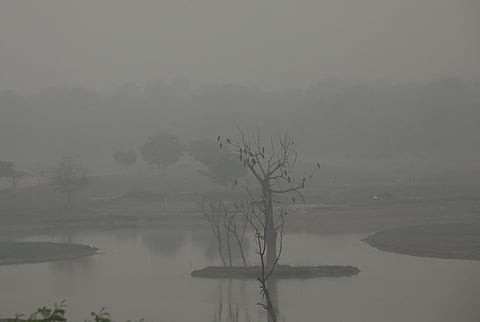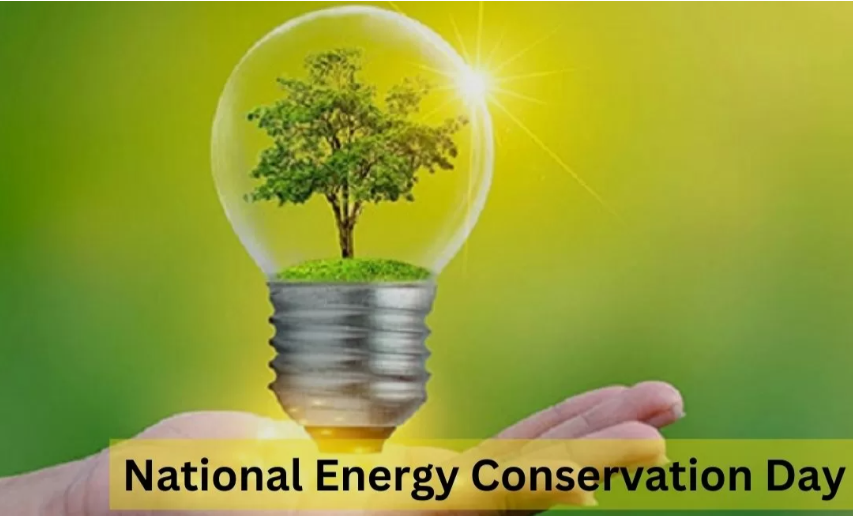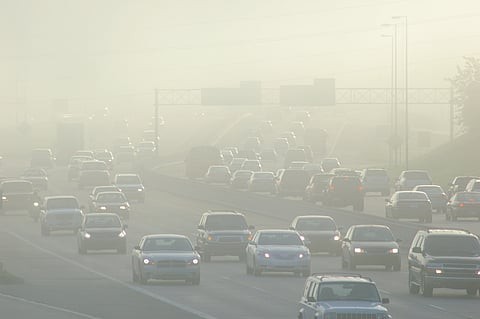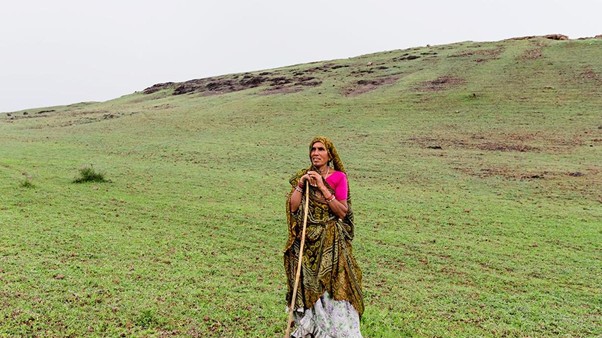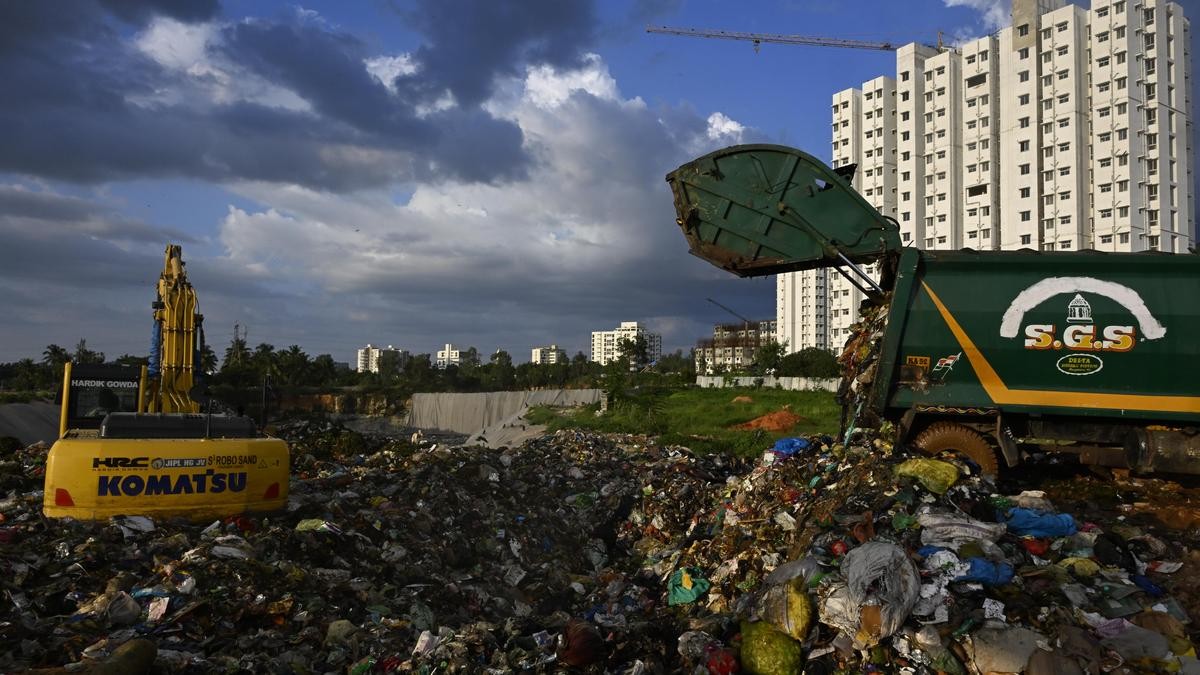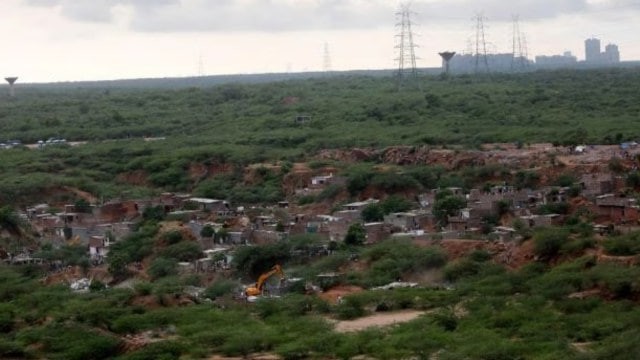Description
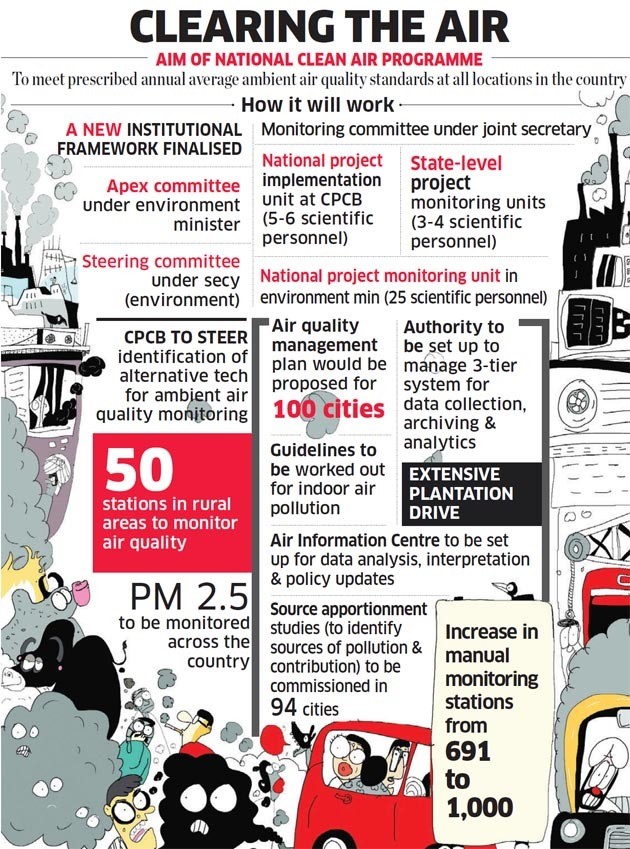
Disclaimer: Copyright infringement not intended.
Context: Four years since the introduction of the National Clean Air Programme (NCAP) — India’s first national policy on curbing air pollution — air quality has improved in only 49 out of 131 cities in 2021-22 from the previous financial year’s figure, according to a report by the Centre for Research on Energy and Clean Air.
Details:
Findings:
- Only 38 of the 131 cities that were given annual pollution reduction targets under agreements signed between State Pollution Control Boards (SPCBs), Urban Local Bodies (ULBs) and the Centre managed to meet the targets for 2021-22, the report noted.
- CREA estimates India will need to install more than 300 manual air quality monitoring stations per year to reach the NCAP goal of 1,500 monitoring stations by 2024. So far, only 180 stations were installed over the past four years.
.jpeg)
About NCAP:
- The NCAP, announced four years ago, covers 132 of India’s most polluted or so-called non-attainment cities.
- This is defined as a city whose air quality did not meet the national ambient air quality standards of 2011 to 2015.
- The NCAP aims to bring a 20%-30% reduction in pollution levels from PM2.5 and PM10 particles by 2024, using 2017 pollution levels as a base.
- For disbursing funds, the Central Pollution Control Board, which coordinates the programme, only considers levels of PM10, the relatively larger, coarser particles.
- However PM2.5, the smaller, more dangerous particles, aren’t monitored as robustly in all cities, mostly due to the lack of equipment.
- Cities are required to quantify improvement starting 2020-21, which requires 15% and more reduction in the annual average PM10 concentration and a concurrent increase in “good air” days to at least 200.
- Anything fewer will be considered ‘low’ and the funding, provided by the Centre via the Environment Ministry, consequently reduced.

https://epaper.thehindu.com/Home/ShareArticle?OrgId=GPLAO5E0R.1&imageview=0






